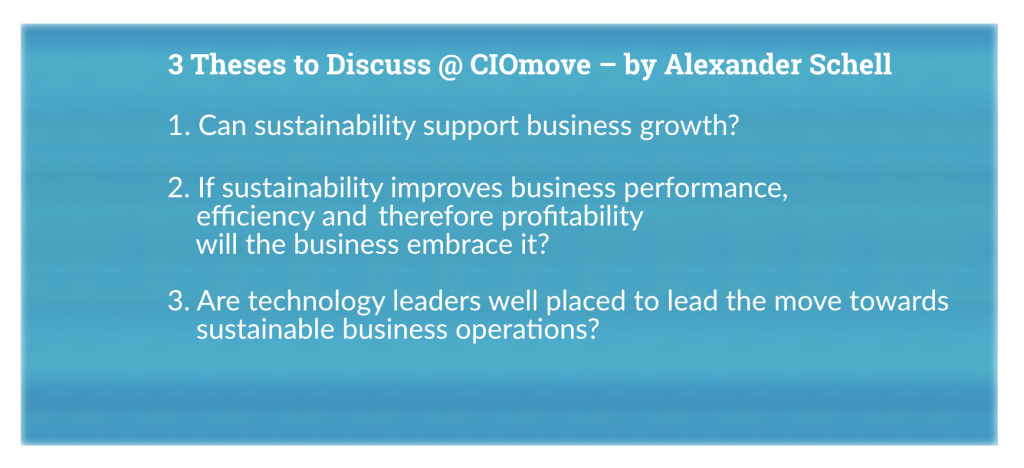
For organisations to be environmentally sustainable, they need to be efficient. Johnson Controls has been in the business of efficiency since 1883. Like any large organisation, though, its processes, and therefore technology, have to enable efficiency, which will then help to enhance sustainability.

Head of IT at Johnson Controls in Germany, Alexander Schell, says efficiency is in the DNA of his organisation and that environmental sustainability will become the DNA of many organisations when it is coupled with economic efficiency. When organisations are economically efficient, they are able to increase operational profits, which again is part of the DNA of successful organisations like Johnson Controls. The business technology leader believes that sustainability has gone from a nice to have to a strategic imperative that is driving business growth and that efficiency is essential to unlocking vital capital.
Johnson Controls was founded in 1883 when Warren Johnson patented a thermostat in Wisconsin, USA. Just two years later, the company developed steam valves, pressure reduction valves and hydraulic compressors. When the new United Nations was formed in 1949, the company was selected to provide air-conditioning for its New York skyscraper headquarters. Fifty-one years ago, Johnson Controls developed the first computer for managing the systems of a building. During its history, Johnson Controls also became a leader in battery technology and, for a time, was also a manufacturer of car seats and plastic bottles. Today, it focuses solely on smart and sustainable buildings, including data centre cooling. “We create smarter and healthier places for people to live and work and that can be in companies, schools, hospitals and even stadiums,” Schell says. Johnson Controls has over 100,000 employees in 150 countries.
Schell joined Johnson Controls in 2021 to lead the digital transformation of the German business unit, and to bring his history of change programmes to the organisation. Across its international operations, Johnson Controls is implementing a digital transformation. Central to this is moving onto a global Oracle Fusion Cloud enterprise resource planning (ERP) platform. “The company has grown through mergers and acquisitions, so we have a very fragmented landscape that we are now harmonising,” he says.
Locally, Johnson Controls Germany is increasing the use of automation, modern field service management tools, electronic customer processes and data. Working with an external partner, Schell’s team has implemented e-invoicing to comply with EU regulations that demand that public sector organisations receive electronic invoices. But this initiative also helped to increase internal efficiency and to generate operational cost savings.
“We are digitising various paper-based processes as some parts of the business still have a lot of printing and scanning for multi-level processes. We have moved those processes onto SharePoints including electronic signature functionality for approval,” he says.
ServiceMax has been implemented to improve the scheduling of maintenance teams and the time and attendance of staff. This moves the German operations off legacy self-developed legacy applications. “We are also looking at robotic process automation (RPA) to move time-consuming processes to some bots, that will free up our employees to focus on value-adding activities.
“We are migrating all major services and infrastructure to the cloud to have a scalable and secure IT environment.”
Alongside the decision to migrate to the cloud-based Oracle Fusion ERP, Johnson Controls has also opted for cloud solutions and providers in many other key business areas. Schell says these changes will make IT become a true business enabler.
